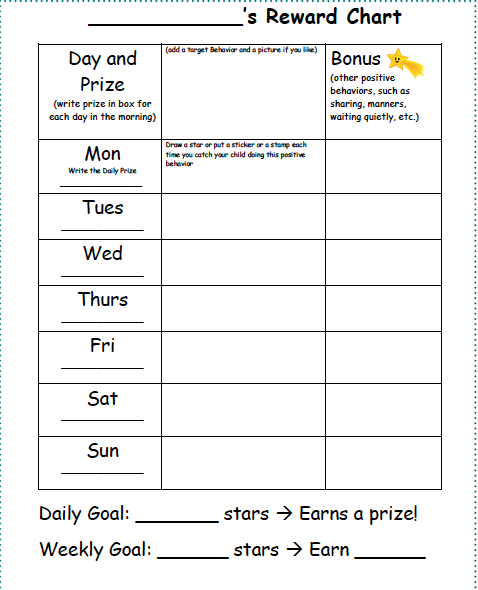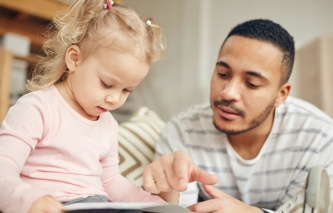What We Can Learn from PriCARE as Kids Go Back to School
Editor's Note: This post is part of our “Back to School” series in which our experts discuss the top health-related issues facing children and families as they head back to school. This year, COVID-19 is certainly one of these challenges. Some schools made the decision to reopen this fall, while others are sticking with virtual learning due to the effects of the pandemic. This remains a fluid situation, which is why we developed evidence-based guidance for schools with thresholds for test positivity rates and case counts as they consider reopening strategies into the fall. For more, follow our hashtag #PolicyLabGoesBacktoSchool on Twitter.
Parenting During A Pandemic
Parenting during the COVID-19 pandemic has been and continues to be a difficult journey for many. Families are spending a lot more time together at home, and the village that often helps raise children, including daycares, schools and grandparents, has not been as available due to social distancing requirements. Many of the usual parenting challenges, such as managing tantrums, bedtime routines and potty training, have been exacerbated. Additionally, both caregivers and children are experiencing the stress of uncertainty and disrupted routines, and we’ve heard from caregivers that they’re seeing increases in their children’s defiant and challenging behaviors.
As the landscape has changed significantly, our PriCARE (Child Adult Relationship Enhancement in Pediatric Primary Care) team has converted our six-week positive parenting intervention into a virtual model to provide ongoing support to caregivers. The foundation of PriCARE rests on one-on-one, child-directed play sessions in which caregivers and children have 3-5 minutes of daily undivided attention and positive time together. We encourage caregivers to use this time to listen, praise, and describe what their child is doing in order to demonstrate attentiveness and affection, as well as reduce child misbehavior and prevent worsening behavior. Consistent, positive caregiver-child interaction helps strengthen the caregiver-child relationship and increases the likelihood of improving behaviors and compliance throughout the remainder of the day. In our team’s research, PriCARE has shown success in reducing child behavioral problems, parental stress and ineffective parenting.
Back to School Blues (and Screens)…
Caregiver-child communication will be even more important as caregivers face another challenging season during the pandemic—the start of the school year. At this time, many schools have determined that virtual learning is the safest option for families and staff. While safety is of the utmost concern, there are a multitude of challenges that arise from children participating in virtual schooling. As researchers and providers, we’ve compiled takeaways from our own virtual model that providers can share with caregivers to implement at home and help ease this transition.
…Plus Tips to Share to Manage Them
To start, in PriCARE, the advice we give caregivers to help the day run smoothly is to “catch their child being good” and praise them throughout the day when they see desired and expected behaviors. Praise can come in many forms including specific and positive affirmations of the desired behavior (e.g., “Thank you for sitting quietly at the table!” as opposed to a generic “Great job!”), an enthusiastic thumbs up or a reward.
We emphasize praising expected behaviors because even behaviors that caregivers expect their children to be able to do or know how to do need to be reinforced. Children do not need to be angelic in order to receive praise. Praising the behaviors you expect (e.g., manners, waiting patiently, washing hands) is also very important in order for those behaviors to continue and to avoid spotlighting and attending only to the undesirable behaviors.
Encouraging parents to establish routines and schedules can be very helpful in supporting children (and caregivers, too!), setting them up for success as the virtual school year approaches. For example, establishing bedtimes, wake times, meal times and outdoor times are some ways to help children’s moods and behaviors because they know what to expect and when. Going outside and getting exercise improves our physical and mental health, and it can create shared fun between caregivers and children. If an outdoor activity is not an available or safe option, GoNoodle is a free online resource to share with caregivers that offers activity options for young children.
Reward charts can also be an effective method for caregivers to motivate desirable behaviors in young children. Consider recommending a  printout reward chart that can be hung up on the refrigerator (or somewhere very visible) where caregivers can put a star or smiley face when they see their child doing something positive. An alternative is using a free phone application, such as iReward Chart, which is an electronic reward chart used for encouraging and tracking children’s behaviors and progress toward targeted rewards. For more active or distractible children, it may be helpful to have a small fidget toy or a special seat that wiggles to provide non-disruptive stimulation that can help keep them focused during virtual schooling.
printout reward chart that can be hung up on the refrigerator (or somewhere very visible) where caregivers can put a star or smiley face when they see their child doing something positive. An alternative is using a free phone application, such as iReward Chart, which is an electronic reward chart used for encouraging and tracking children’s behaviors and progress toward targeted rewards. For more active or distractible children, it may be helpful to have a small fidget toy or a special seat that wiggles to provide non-disruptive stimulation that can help keep them focused during virtual schooling.
Importantly, we know that many children are grieving the separation from peers, teachers, and family members, as well as cancelled events and traditions. If a child is feeling sad or angry, providers can encourage caregivers to help children label their feelings; for example: “It sounds like you are feeling angry. What are you angry about?” Then it may help to give choices of what children can do to reconnect and have fun with friends and family while remaining safe, such as emailing or video calling friends, or making a list of things to look forward to.
Providing Encouragement As We Move Forward
During these uncertain times, it remains extremely important to remind caregivers to prioritize self-care and to be flexible with expectations of themselves and their children. We want to recognize caregivers for their incredible perseverance in maintaining all of their personal and professional roles despite the uprooting of many of their support systems. We also want to praise and recognize children for their ongoing resiliency and flexibility.
As we all navigate this new and different school year together, it is important that we continue to provide support for children and caregivers, using evidence-based practices that can encourage and support the whole family.
Devon Kratchman is a former clinical research coordinator at PolicyLab.
Emily DePaul, MPH, MA, is a clinical research coordinator at Clinical Futures working with the PriCARE project team.
